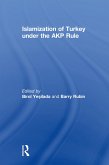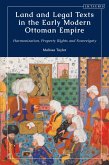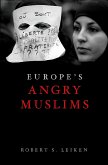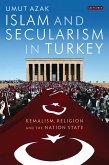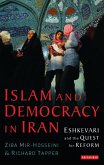Modern Turkey is the site of a powerful Islamic revival, with a strong intellectual elite dedicated to the overthrow of secular modernism. Why have modern Muslim intellectuals turned against the ideals of Kemalism on which the modern Turkish nation-state is founded? What does this reveal about the future of Turkey? And how are Islamic intellectuals in Turkey affected by developments in the Middle East?
Muslims in Modern Turkey is the first book to analyse this phenomenon, tracing the evolution of Muslim intellectual thought from the 1980s to the present day. It focuses on six leading Muslim thinkers - Ali Bulaç, Rasim Özdenören, ?smet Özel, ?lhan Kutluer, Ersin Nazif Gürdo?an and Abdurrahman Dilipak - who belong to a single school and share a novel understanding of Islam. They act as public intellectuals, who aim to reform and enlighten society by educating them and raising their awareness of Islamic values, arguing not for the compatibility of Islam and European values but the fundamental superiority of Islam over secular democracy.
Sena Karasipahi places the Turkish experience in its broader international context and shows how Turkish Islamic intellectuals are affected by the earlier Muslim intellectuals and revivalists in the Arab world and in Turkey. This important study makes connections with the Islamic revival process throughout the contemporary Middle East as well as with comparable movements in Turkey's own past, making this a crucial contribution to an understanding of contemporary Islamic political thinking.
Muslims in Modern Turkey is the first book to analyse this phenomenon, tracing the evolution of Muslim intellectual thought from the 1980s to the present day. It focuses on six leading Muslim thinkers - Ali Bulaç, Rasim Özdenören, ?smet Özel, ?lhan Kutluer, Ersin Nazif Gürdo?an and Abdurrahman Dilipak - who belong to a single school and share a novel understanding of Islam. They act as public intellectuals, who aim to reform and enlighten society by educating them and raising their awareness of Islamic values, arguing not for the compatibility of Islam and European values but the fundamental superiority of Islam over secular democracy.
Sena Karasipahi places the Turkish experience in its broader international context and shows how Turkish Islamic intellectuals are affected by the earlier Muslim intellectuals and revivalists in the Arab world and in Turkey. This important study makes connections with the Islamic revival process throughout the contemporary Middle East as well as with comparable movements in Turkey's own past, making this a crucial contribution to an understanding of contemporary Islamic political thinking.



